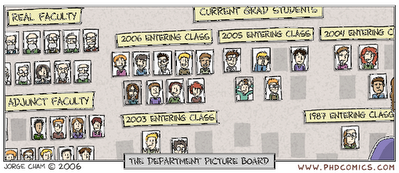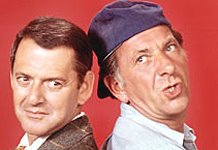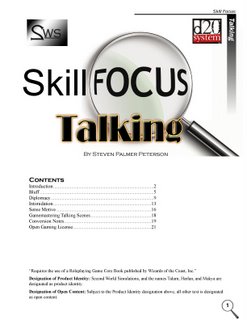Big congratulations out to
Richard!
He not only received a couple option offers, but also a manager (!) via
InkTip, within a few days of posting something there again for the first time in a while.
Richard has recently
done well in
some contests,
had a short produced, and done some writing on assignment:
Dog in Space. He's a terrific example of how putting in the time, i.e. constantly writing, can make something happen, even in the wilderness.
If you clicked on the "Dog in Space" link above you'll likely see a somewhat disturbing looking dog. And it certainly sounds like Richard had his doubts about that assignment as well. But he soldiered through it, made a little money, and gained some invaluable experience (and perhaps a writing credit).
*****
In Dungeons & Dragons it can be awfully tempting for a low level wizard to sacrifice two of their wizard levels to pick up something like some
monk training. You get a +3 to all saves, good skills, and the always valuable evasion. Moreover, all you sacrifice for these benefits is maybe one
magic missile spell and a cantrip.
And, assuming you're playing that character for a while, that'd be a terrible mistake.
Because once you hit 17th level you'll realize you traded all that off for a
power word, kill or
timestop.
*****
Writers are in a similar situation. As a beginning writer (either novels or screenwriting) even if that book/script does pay off, it'll likely be around a few thousand dollars. And getting that couple thousand dollars will take months of work.
Clearly, working at practically any other job for a few months will earn you a bunch more money than writing, so the rational choice would be to scrap the writing. I imagine more than a few of you have been told this repeatedly by your relatives.
But the value of that first sold book or screenplay is like the value of that first wizard level -- it makes everything you do later
more valuable. Moreover, for novels, the book itself becomes more valuable as you build your career. If it's decent, even a moderately successful pro writer can earn money off it for years.
Even if what you're working on doesn't sell, it helps push you through to where you write stuff that
does get published/picked up. Then, once you do establish a career, all that stuff you wrote earlier gets a second chance. Some of it won't deserve a second chance, but I'm confident that some of it will.
So, if you have some confidence in your ability to make a career at writing, and have an opportunity to trade off a little extra money now for the time you need to get an additional novel or couple scripts written, I think choosing the writing is not just a starry-eyed matter of following your dreams, but a rational long term investment.

















I'm continually puzzled why so many people think they're the champions of the union-protected working class when the unions have lined up on the other side of the fight:
All the above support relaxing the immigration laws, see here and here.
Does anyone know or have links to what unions are on the other side?